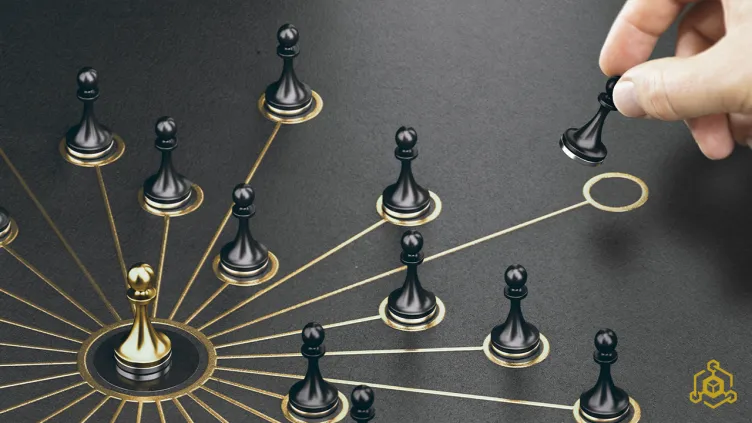AI Articles & Insights That Matter

Licensing Strategies to Scale Your Business Faster
A licensing strategy can be a great way to scale your business faster than through M&A alone. By finding the right licensee and negotiating a mutually beneficial agreement, you can protect your brand while expanding your reach and customer base. There are some key things to keep in mind when choosing a licensee, such as making sure they are reputable and that the agreement terms are favorable to your company.
Licensing vs. M&A: Which Is Right for Your Business?
When it comes to scaling your business, you have two main options: mergers and acquisitions (M&A) or licensing. Both have their pros and cons, but which one is the right choice for your business? Let's take a closer look at each option to find out.
M&A involves combining two businesses into one. This can be done through a merger, in which both businesses combine to form a new entity, or an acquisition, in which one business buys out the other. M&A can be a great way to quickly scale your business by giving you access to new markets, customers, and resources. However, it can also be very risky. M&A deals often fail to meet expectations, and they can be very expensive and time-consuming.
Licensing, on the other hand, involves renting or leasing your products or services to another company. This is usually done via a contract that outlines the terms of the agreement. Licensing can be a great way to generate revenue without having to invest in new infrastructure or staff. It can also help you enter new markets without incurring much risk. However, licensing deals can be difficult to negotiate, and you may not have as much control over how your products or services are used by the licensee.
So, which is the better option for your business: M&A or licensing? The answer depends on your specific situation. If you're looking for a quick way to scale your business and are willing to take on some risk, M&A may be the right choice for you. If you want to generate revenue without incurring much expense or risk, licensing may be the better option. Ultimately, it's up to you to weigh the pros and cons of each option and decide which is right for your business.
How to Negotiate a Licensing Agreement
As a business owner, there's a good chance that you've considered licensing your products or services at some point. After all, licensing is a great way to generate additional revenue without having to put in the extra work to produce more goods or services. But how do you go about finding the right licensee and negotiating a licensing agreement that benefits both parties involved? Here are a few tips:
1. Do your research. It's important that you take the time to research potential licensees before entering into negotiations. You'll want to make sure that they're reputable and that they have the resources necessary to successfully produce and market your product or service.
2. Draft a detailed agreement. Once you've found a potential licensee that you're comfortable doing business with, it's time to draft a detailed licensing agreement. This agreement should spell out exactly what each party is responsible for and what rights and privileges are being granted. Be sure to have an attorney review the agreement before signing anything!
3. Negotiate in good faith. When it comes time to negotiate the terms of the agreement, be sure to do so in good faith. Keep in mind what's fair and reasonable for both parties involved, and try to come to an agreement that everyone can be happy with.
Licensing can be a great way for business owners to generate additional revenue without having to put in extra work. But it's important that you take the time to find the right licensee and negotiate a fair and detailed licensing agreement before moving forward. By following these tips, you'll be on your way to success!
The Top 3 Licensing Mistakes Business Owners Make... And How to Avoid Them
As I have mentioned, licensing is a great way to generate additional revenue and expand your brand. But the process can be tricky, and there are a few common mistakes that business owners make that can trip them up. I'm going to show you the three most common mistakes and how to avoid them.
1. Not Doing Your Research
One of the most common mistakes business owners make when licensing their products or services is not doing their research. They enter into agreements without really knowing what they're getting themselves into. They don't know the ins and outs of the licensing process, or what kind of rights they're giving away. As a result, they often end up in unfavorable deals that leave them feeling taken advantage of.
To avoid this mistake, it's important that you do your research before entering into any licensing agreement. Learn as much as you can about the process and what kind of rights you're entitled to. You should also have a clear understanding of what you want to achieve with the agreement. What are your goals? What are your expectations? Once you have a good understanding of these things, you'll be in a much better position to negotiate a favorable deal.
2. Not Protecting Your Intellectual Property
Another common mistake business owners make is not protecting their intellectual property (IP). When you license your product or service, you're essentially giving someone else permission to use your IP. If they choose to do so without following the terms of the agreement, or if they use it in an unauthorized way, it could damage your brand or reputation—and even worse, it could put your business at risk.
To avoid this mistake, it's important that you include provisions in your agreement that protect your IP. These provisions should state how the other party is allowed to use your IP, and what they need to do if they want to use it in an unauthorized way. By including these provisions, you'll have peace of mind knowing that your IP is protected and that your business is safe.
3. Not Getting Everything in Writing
The third and final mistake I see business owners make when licensing their products or services is not getting everything in writing. This is one of the biggest mistakes you can make because it leaves everything up for interpretation—and interpretation often leads to misunderstanding and conflict down the road.
To avoid this mistake, make sure that every aspect of your agreement is clearly laid out in writing. This includes things like payment terms, usage rights, expiration dates, etc. By getting everything in writing, you'll eliminate any ambiguity and ensure that both parties are on the same page from the start.
Licensing can be a great way to generate additional revenue and expand your brand—but only if it's done correctly. To avoid making common mistakes that can trip you up, be sure to do your research ahead of time, protect your intellectual property, and get everything in writing before entering into any agreement. By following these tips, you'll be well on your way to success!
A License to Print Money (Protecting Your Brand)
You've built a successful business and now you're ready to take it to the next level by licensing your brand. But before you sign on the dotted line, there are a few things you need to know in order to protect your brand.
What Exactly is Licensing?
Licensing is when a company pays to use another company's brand name, logo, or other intellectual property. This is usually done in order to produce a new product or service. For example, let's say you have a successful line of clothing. A company that makes shoes might want to license your brand in order to produce a line of shoes with your logo on them.
Choosing the Right Partner
Not all companies are created equal, and not all companies will have the same respect for your brand. It's important to do your research and choose a partner that you feel comfortable with. Ask around and see if anyone has had any experience with the company you're considering licensing your brand to. Once you've found a company you're comfortable with, it's time to negotiate the terms of the agreement.
Negotiating the Terms of the Agreement
This is where having a good lawyer comes in handy. Your lawyer will help you negotiate the terms of the agreement so that your interests are protected. Some of the things you'll want to consider are:
-What rights are being licensed?
-For how long?
-In what territory?
-What are the royalty rates?
-What are the restrictions on how the licensed property can be used?
-What are the consequences if the licensee doesn't meet its obligations?
-How will disputes be resolved?
-Who will own any improvements made to the licensed property?
These are just some of the things you'll want to consider when negotiating the terms of your licensing agreement. Make sure that everything is clearly spelled out in writing so there's no confusion later on down the road.
Negotiate the terms of the agreement so that your interests are protected, and make sure that everything is clearly spelled out in writing before moving forward. By taking these precautions, you can help ensure that your brand is protected during a licensing deal.
How to Use Licensing to Scale Your Business
By definition, licensing is "a contractual arrangement in which one party grants another party the right to use its IP." In other words, it's a way for you to give others permission to use your intellectual property—such as your brand, patents, or copyrighted material—in exchange for a fee.
There are many benefits to using a licensing strategy to scale your business. For one, it can help you generate revenue without having to put in the extra work of manufacturing and selling products yourself. Additionally, it can help you reach new markets and tap into new customer segments that you might not have had access to before. And lastly, it can help build your brand and increase awareness of your company.
However, before you go ahead and start licensing your IP willy-nilly, there are a few things you should keep in mind to make sure it's successful for you. First and foremost, you need to make sure you have strong IP rights—otherwise known as intellectual property rights—to protect your IP. Secondly, you need to consider what type of license agreement makes the most sense for your business. And lastly, you need to have a plan for enforcing your rights if someone violates your license agreement.
Intellectual Property Rights
Before you can even think about entering into a licensing agreement, you need to make sure you have strong intellectual property rights. These are the legal rights that allow you to control how others use your IP—including your copyrights, patents, trademarks, and trade secrets.
There are four main types of intellectual property rights:
1. Copyrights: These protect original works of authorship, such as books, music, and artwork.
2. Patents: These protect inventions or discoveries with a unique design or function.
3. Trademarks: These protect words, phrases, logos, or other symbols that identify the source of goods or services.
4. Trade secrets: These protect confidential information that gives a business an advantage over its competitors (think Coca-Cola's recipe).
Types of License Agreements
Once you have strong IP rights, you need to decide what type of license agreement makes the most sense for your business. There are three main types of licenses:
1. Exclusive: This means that only the licensee has the right to use your IP.
2. Non-exclusive: This means that more than one party can use your IP.
3. Partially exclusive: This is a mix of the two—the licensee has the right to use your IP, but so do you.
The type of license agreement you choose will depend on a number of factors, such as how much control you want over who uses your IP, how important exclusivity is to you, and what you're willing to give up in exchange for a licensing fee.
Enforcing Your Rights
Lastly, you need to have a plan for enforcing your rights if someone violates your license agreement. This includes having a clear understanding of what constitutes a violation, and setting up procedures for handling infringement claims. Additionally, it's important to have a lawyer review your license agreement before you sign it, so that you know your rights and obligations under the agreement.
I’m sure by now you can tell that licensing can be a great way to scale your business. It can help you generate revenue without having to put in the extra work of manufacturing and selling products yourself. Additionally, it can help you reach new markets and tap into new customer segments that you might not have had access to before. And lastly, it can help build your brand and increase awareness of your company.
I have used licensing extensively in my business over the past 19 years as my #1 strategy to grow and scale. Recently I co-founded a new technology to assist entrepreneurs to scale their impact with a cool “loyalty royalty” model using the power of web3. You can check it out here.
Respectfully,
Glenn Dietzel
Hear From Our Clients

Darby Rollins
Founder, The AI Author

Lorem ipsum dolor sit amet, consectetur adipiscing elit. Quisque nisi nunc, tincidunt non nibh non, ullamcorper facilisis lectus. Sed accumsan metus viverra turpis faucibus, id elementum

Opher Brayer
CSO, Impro.ai

Lorem ipsum dolor sit amet, consectetur adipiscing elit. Quisque nisi nunc, tincidunt non nibh non, ullamcorper facilisis lectus. Sed accumsan metus viverra turpis faucibus, id elementum

Jurica Dujmović
MarketWatch Tech and Crypto Journalist

Lorem ipsum dolor sit amet, consectetur adipiscing elit. Quisque nisi nunc, tincidunt non nibh non, ullamcorper facilisis lectus. Sed accumsan metus viverra turpis faucibus, id elementum

“Turning today's science fiction into tomorrow's reality.”
Navigation
Social Media
© 2026 NexGen Business Solutions. All Rights Reserved.
© 2026 Company Name - All Rights Reserved, consectetur adipiscing elit. Maecenas commodo suscipit tortor, vel tristique sapien

